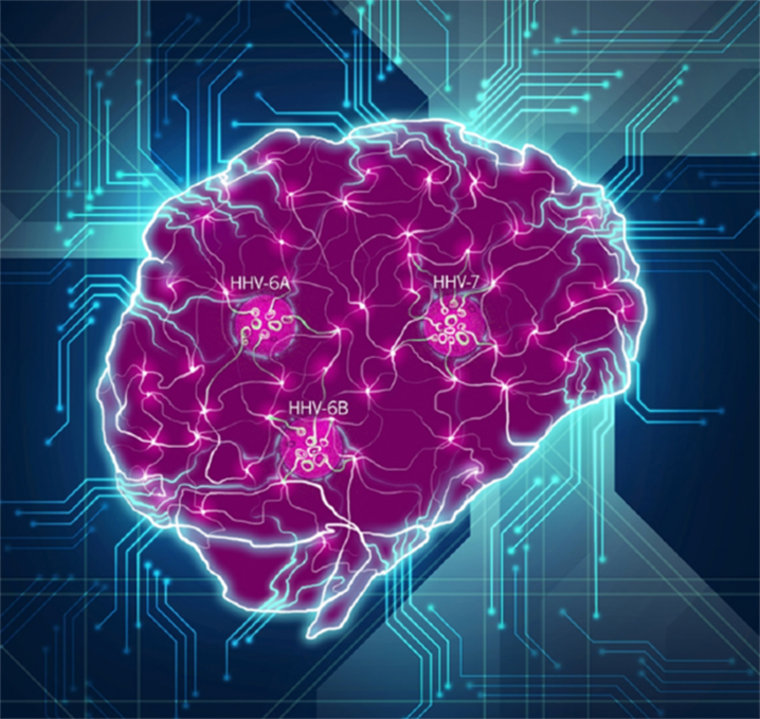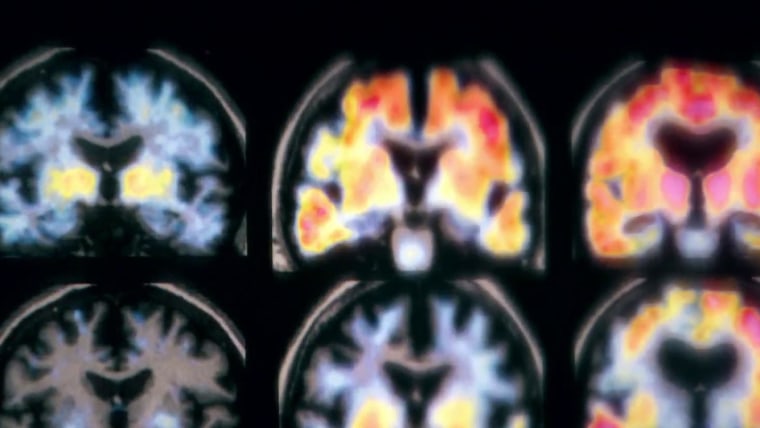Childhood viruses that infect almost everyone and lie dormant in the body for life might be involved in Alzheimer’s disease, researchers reported Thursday.
They found that viruses called human herpes virus 6 (HHV-6) and HHV-7 were more abundant in the brains of people who died with Alzheimer’s.
Their findings add to a controversial theory that viruses might play a role in starting or fueling Alzheimer’s, a progressive, incurable brain disease that robs people of their personalities, memory and ability to care for themselves.
But the findings mean little — yet — for efforts to find a cure.
“People shouldn’t call their doctors and ask for the virus drug. That won’t be useful yet,” said Alzheimer's disease specialist Dr. Sam Gandy of Mount Sinai Hospital, who helped lead the study team.

“To be clear, it does not prove the idea that viruses causes Alzheimer’s. It shows that there is a link,” said Keith Fargo, scientific director of the Alzheimer’s Association, who was not involved in the work.
Theories have abounded for decades that viruses might be involved in Alzheimer’s, especially herpes viruses, which have a special affinity for nerve cells.
Herpes viruses, which cause permanent, lifelong infections, can re-activate when people’s immune systems are weakened, so it’s never been clear if the viruses were causing disease or just taking advantage of the disease process to replicate.
Gandy and colleagues looked at data from brains donated by peoples’ families after they died. They analyzed gene sequences taken from the brains — both genes of the patients and of any viruses that happened to be in their brains.
They also looked at evidence of gene activity. Because they had many different brains to look at, from several different projects, they were able to compare data from people with advanced Alzheimer’s disease, those with moderate or early-stage disease, those with other brain or nerve diseases, and healthy people.
People with Alzheimer’s had more evidence of HHV-6 and HHV-7 activity in their brains, and on a genetic level, the virus seemed to be interacting with Alzheimer’s-related genes, they reported in the journal Neuron.
And those with more advanced disease had more virus in their brains.

“I don't think we can answer whether herpes viruses are a primary cause of Alzheimer's disease. But what's clear is that they're perturbing networks and participating in networks that directly accelerate the brain towards the Alzheimer's topology," said geneticist Joel Dudley, who helped lead the study.
Previous studies that implicated the cold sore virus (HSV-1) and other viruses in Alzheimer’s only looked at blood. By looking at the brain, the researchers got a better idea of whether the viruses were affecting the brain.
“HSV wasn’t one of the ones we found in the sequencing of the brain. We didn’t see it there,” Gandy said.
HHV-6 and HHV-7 cause roseola, a very common childhood disease that usually infects babies and toddlers. Commonly known as sixth disease, it’s found in 90 percent of U.S. children. It usually causes a fever and sometimes a rash and rarely causes complications, although it can cause a dangerous brain inflammation called encephalitis.
Like other herpes viruses, HHV moves to nerve cells, especially to a part of the brain called the hippocampus, Gandy said.
And like other herpes viruses, it can flare up after having been dormant for decades. Cold sores and genital herpes are common examples, as is the varicella virus that causes chickenpox in childhood and painful shingles in adults.
It’s almost certainly the case that these viruses have been in the bodies of the affected people for a long time, said Fargo.
“I would say the most important thing for you to know right now is that Alzheimer’s is not contagious,” he said.
Between 5 million and 6 million Americans have Alzheimer’s, according to the Alzheimer’s Association. There’s no cure, although drugs on the market can mask the symptoms for a while.

